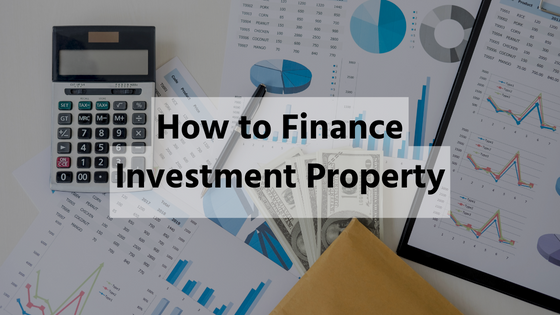How to Finance Investment Property

Investing in real estate can offer landlords a great opportunity to build wealth and ensure stable finances in the long run. However, one of the biggest challenges many landlords face is financing their investment properties.
In this comprehensive guide, we’ll explore the various financing options available to landlords, as well as the benefits of investing in real estate and the diverse uses for investment properties. Keep reading this article to learn more!
Why Invest in Real Estate?
Investment properties offer several advantages for landlords, including:
- Potential for Appreciation: Real estate has historically appreciated in value over time, providing landlords with the opportunity to build wealth through property appreciation.
- Steady Rental Income: Landlords can generate consistent cash flow by renting out their investment properties to tenants. This steady rental income can help cover mortgage payments, property maintenance costs landlords don’t notice, and other expenses.
- Portfolio Diversification: Real estate investments can diversify a landlord’s investment portfolio, reducing overall risk and potentially increasing returns.
- Tax Benefits: Landlords may be eligible for various tax deductions and incentives, such as deductions for mortgage interest, property taxes, and depreciation, which can help minimize their tax liability and increase their net income.
Diverse Uses for Investment Property
Investment properties can be utilized in various ways, including:

- Passive Income Generation: Establishing a passive income source through property rental allows landlords to generate ongoing revenue from tenants, providing financial stability and security.
- Flipping Properties: Landlords have the option to participate in property flipping by purchasing distressed properties, renovating them, and then selling them at a profit.
- Family Accommodation: Investing in a property for elderly family members to reside in can not only provide them with a comfortable living space but also benefit from the property’s appreciation upon eventual sale.
- Development Opportunities: Landlords can acquire and retain land for future development, capitalizing on potential growth and expansion opportunities in the real estate market.
Exploring Financing Options for Investment Properties
Understanding the Various Methods of Funding is paramount for landlords seeking to finance their investment properties. Below are several avenues through which landlords can secure financing:
Traditional Bank Financing
Traditional bank financing provides landlords with the opportunity to secure mortgage loans, which often require a down payment and offer either fixed or adjustable interest rates.
Despite the rigorous application process, opting for traditional bank financing can afford landlords the benefits of long-term repayment plans and competitive interest rates, facilitating stable and sustainable investment growth over time.
Utilizing Home Equity
Landlords who own their primary residence may tap into their home equity to finance investment properties. Home equity loans and home equity lines of credit (HELOCs) serve as common options for accessing home equity.

By borrowing against the equity in their home, landlords can secure favourable terms and lower interest rates compared to other financing options. Additionally, home equity financing allows landlords to retain ownership of their investment properties while leveraging their existing assets.
Hard Money Lending
Hard money lenders specialize in offering short-term loans secured by the property itself, allowing landlords to bypass the stringent credit requirements of traditional lenders.
While the higher interest rates and shorter repayment terms associated with hard money loans may seem daunting, their swift approval process and focus on property value make them invaluable resources for landlords navigating time-sensitive investment endeavours .
Investigating Innovative Funding Sources
In addition to traditional financing options, landlords can explore alternative funding sources, including:
- Exploring Credit Cards and Personal Loans: While not ideal, credit cards and personal loans can be used as short-term financing options for investment properties.
- Peer-to-Peer Lending Platforms: Online platforms connect investors with borrowers, allowing landlords to obtain financing from individual investors.
- Fix-and-Flip Loan Options: These loans are specifically designed for investors who buy properties with the intention of renovating and reselling them quickly.
- Understanding Margin Loans: Margin loans allow investors to borrow money against the value of their investment portfolio, including stocks and bonds, to finance real estate investments.
- Leveraging Life Insurance Policies: Landlords may be able to borrow against the cash value of their life insurance policies to finance investment properties.

Frequently Asked Questions About Investment Property Financing
What types of properties are eligible for investment financing?
Investment financing is typically available for residential rental properties, commercial properties, and multifamily properties. These property types offer landlords various opportunities to diversify their portfolios and achieve their financial goals.
What criteria do I need to meet to qualify for financing for an investment property?
To qualify for financing for an investment property, landlords typically need to meet requirements such as credit score, income, debt-to-income ratio, and property appraisal.
Lenders evaluate these criteria to assess the landlord’s ability to repay the loan and the property’s value as collateral. Additionally, landlords may need to provide documentation of rental income and expenses to demonstrate the property’s cash flow potential and investment viability.
What are the differences between a home equity loan and a home equity line of credit (HELOC) for funding investment properties?
Home equity loans provide a lump sum of money with a fixed interest rate, while HELOCs offer a revolving line of credit with a variable interest rate. Landlords should consider factors such as interest rates, repayment terms, and flexibility when choosing between the two options for investment property financing.
Bottom Line
In conclusion, financing investment properties requires careful consideration of various factors, including the benefits of investing in real estate, the diverse uses for investment properties, and the available financing options.
IPM Property Management can help landlords navigate the complexities of financing investment properties by providing expert guidance and personalized solutions tailored to their individual needs and goals.
Whether you’re a seasoned investor or a first-time landlord, IPM Property Management, a local Chico, CA property management company, is here to help you achieve your real estate investment objectives.
